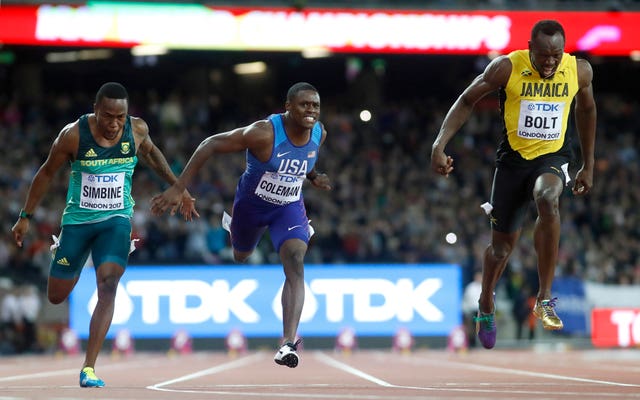The whereabouts charge against American sprinter Christian Coleman has been withdrawn, the United States Anti-Doping Agency has announced.
The decision means the 23-year-old, who was 100 metres silver medallist at the World Championships in London two years ago, will be eligible to compete at the 2019 global showpiece event which gets under way in Doha later this month.
The case against Coleman – three alleged failures to properly file whereabouts information over a 12-month period – had been due to be heard on Wednesday, with the possible punishment of a two-year ban.
Whereabouts Violation Case Against USA Track & Field Athlete Christian Coleman Withdrawn: https://t.co/turhQfyHf9 — USADA (@usantidoping) September 2, 2019
The world indoor 60 metres champion and fastest man in the world this year always denied any wrongdoing and had been confident his name would be cleared.
USADA said it withdrew the charge after receiving guidance from the World Anti-Doping Agency (WADA).
A statement read: "USADA announced today that it has withdrawn its charge that USA Track & Field athlete Christian Coleman committed a violation of the whereabouts rules after receiving guidance from the World Anti-Doping Agency (WADA) on the interpretation of the current International Standard for Testing and Investigations (ISTI) concerning the date on which a failure to update an athlete's changed whereabouts information should be considered to have occurred.
"As a result of this interpretation, Coleman is not considered to have three Whereabouts Failures in a 12-month period and is not considered to have committed an anti-doping rule violation."

USADA recorded filing failures for Coleman on June 6 last year, and January 16 and April 26 this year. Based on these three failures, a case against Coleman was initiated.
However, given ISTI guidelines state filing failures relate back to the first day of the quarter, Coleman contended that the failure to update which was discovered on June 6 last year should relate back to April 1, 2018, meaning the three 'failures' do not fall in a 12-month period.
With the hearing no longer necessary, Coleman is permitted to compete immediately, although the USADA's decision not to move forward on this matter is subject to appeal by the International Association of Athletics Federations and/or WADA.

USADA chief executive Travis Tygart said: "Consistent application of the global anti-doping rules is essential in every case. In this case we applied the rules to Mr Coleman in the manner that USADA understands should be applied to any other international-level athlete.
"We must approach every case with the primary goal of delivering fairness to athletes under the rules and providing transparency and consistency in order to build their trust and support for the anti-doping system.
"Every athlete is entitled to a presumption of innocence until their case is concluded through the established legal process. This is certainly the case for Mr Coleman, who has been found by USADA not to have committed a Whereabouts Violation and is fully eligible to compete under the rules."







